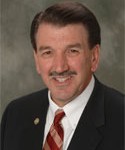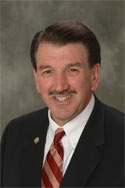Loyal dissent is the highest form of assistance to an organization, while going along mindlessly, is a debilitating form of treachery, made more so when consciously engaged in for personal gain.
“Here in America we are descended in blood and in spirit from revolutionists and rebels – men and women who dare to dissent from accepted doctrine. As their heirs, may we never confuse honest dissent with disloyal subversion.”
— Dwight D. Eisenhower —
________________________________________________________
Organizations are populated with men and women of every stripe, yes, yes-men too. And, this old-fashioned gender biased term is now free of any trappings of a past age. Described ineloquently, and gender neutrally, as apple-polishers, toadies, bootlickers, minions, lackeys, sycophants, puppets, kowtowers, fawners, pawns, and brownnosers: And Juliet nearly missed the point, “Tis but thy name that is my enemy.”
 It’s the action, not the moniker.
It’s the action, not the moniker.
Healthy debate and discussion in a vacuum of thoughtful leadership causes otherwise potent organizations to falter: in boardrooms, classrooms, sanctuaries, or statehouses. Fear of divergent views by leaders transforms complacency into callousness rather than strength. Dishonest agreement is alchemy. People pleasers, often defended by their bosses as loyalists, drain the life out of an organization even if for a season cohesiveness seems to prevail.
Umair Haque, writing on the Harvard Business Review website, November 17, 2010, suggests, “The simplest way to uncover a worst practice is to ask your critics — the fiercer, the better. Most companies have been taught to bash, beat, and silence them — but if you really want to discover where “best” is far from good enough, your critics are worth about five hundred times their weight in management consultants, pundits, and assorted beancounters.”
Don’t misunderstand. Argument for its own sake may be the supreme form of Ike’s “subversion.”
Good organizations encourage and instill the values of debate directed toward vision-defined progress.
Every leader must have a “Challenger in Chief”, yes-men need not apply. Noreena Hertz writes in the Harvard Business Review that leaders need a person who is willing to argue with them. There is absolutely no down side to this perspective. Progress crippling issues might be exposed before they attain corporate culture as “best practice.”
The yes-men at Amazon have their own corporate identifier based on the nature of Chief Jeff Bezos, according to Dan McGinn in HBR last week, “How Jeff Bezos Makes Decisions.” They are called “Jeff-Bots.” Brownnoser sounds like a compliment in comparison. McGinn says the leadership style of Bezos is “infectious”. Maybe the approach works in the corporate world where a single vision guides all, but I doubt it. It falters in a shared governance environment, such as a university; where the vision must well up from a thousand voices, and be glued together by the ringing call of leadership.
The price of silence in the face of insight regarding foolishness, greed, or narcissism is high. Will Yakowicz writes in Inc. last month, ‘It’s Time to Fire Your Yes Men.” “At Lehman Brothers, for example, there was an unspoken rule: Voice dissent and you’re going to get fired. Before Lehman’s demise, the board of directors and management were so agreeable no one dared to say their decisions were leading them right into the financial crisis.”
Further he suggests that Abraham Lincoln was always surrounded by a “team of rivals” and Google Chief Eric Schmidt brings in informed, intelligent dissenters.
“As iron sharpens iron, so one person sharpens another,” proclaims the Book of Proverbs.
Evidently the great emancipator and the king of the Internet embraced this simple but challenging concept.
In Forbes last May Alex Knapp revealed a series of leadership principles professed by James T. Kirk, Captain of the Starship Enterprise. “One of the advantages of being a captain, Doctor, is being able to ask for advice without necessarily having to take it.” He confided this to Bones — you know the compassionate human being — in reference to a conflicting opinion offered by Spock — you know the relentlessly logical Vulcan — seemingly devoid of any feelings at all.
While imitation is regarded as the sincerest form of flattery, honest, sincere, mission-guided dissent may be the most loyal form of citizenship in any complex organization.
Good leaders welcome it. Weak ones run from it.





